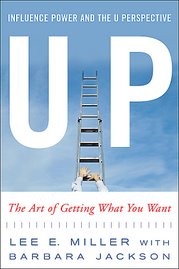 Sunday, May 18, 2008
Sunday, May 18, 2008When Anne Bergen-Taylor was hired at an internet company in the 1990s, her boss told her: "Everyone here has an agenda for what they want you to do. You need to follow my agenda." And that is exactly what she did. As a result, Bergen-Taylor, now the director human resources at DeVry University in North Brunswick, neglected to build relationships with her peers and with people in other departments. So, when her boss was let go, she soon followed. It was an important lesson for her. It is not enough just to keep your boss happy; you need to find the time to build relationships with others throughout the organization. Your future success depends on their help and support.
Like Bergen-Taylor, new graduates frequently make mistakes that hurt their careers. While it is good to learn from your mistakes, it is even better if you can learn from others. Here are some tips to help make the transition from school to work a little smoother:
Technology is no substitute for spending time with people. Technology plays a critical role in today's workplace, and recent graduates are generally comfortable using that technology. However, technology can never replace face-to face interactions with others in the organization. Learn to be equally at ease speaking and contributing at meetings. Management makes Judgments about your leadership potential based on how you present yourself when you are in their presence.
Jake Greene, the twentysomething author of "Whoa, My Boss Is Naked, A Career Book for People Who Would Never Be Caught Dead Reading a Career Book: " says his contemporaries are often reticent to speak up at meetings, yet are very comfortable sharing their thoughts via e-mail and instant messaging. This leads to what he calls a "professional split personality" -- assertive and confident online, but shy in person. Hiding behind your computer won't help you advance. "Boomers need personal contact. If you need a keyboard to communicate, that will be a detriment to your career."
Develop interests and friends outside of work. In addition to building and nurturing a network within your organization, seek out and maintain a diverse set of friends outside of work. Too often, people trap themselves within their organization and their industry. That is career limiting. You never know where the next great opportunity will present itself or what information will prove critical to your future success.
Greene describes this as "having a Danny Ocean mentality," from the character George Clooney plays in "Ocean's Eleven." In the same way Danny Ocean has a multitude of diverse friends whose talents he can call upon when he needs to do a job, you, too, should build friendships with talented and interesting people in all walks of life.
Many people seek out friendships strictly based on their perceived career utility. Because people recognize what you are doing, that is often counterproductive. Keep in touch with individuals because you are genuinely interested in them, not only when you need something. Help them even when there is nothing immediately in it for you. That way, they will be more likely to think of helping you anytime an appropriate opportunity arises without your even having to ask.
Take responsibility for your own career. Nicholas Aretakis, a former vice president of worldwide sales for GlobeSpan in Red Bank and author of "No More Ramen," offers the following advice: "Be patient, but don't just wait for something to happen; make it happen." Too often, young people find the first job they accepted isn't exactly the job they thought it would be, so they leave and look for another job.
This cycle can repeat itself until it ultimately begins to negatively affect an individual's career. Rather than change jobs, a better response might be to seek out additional responsibilities in areas where you have an interest and can add value. In that way, you create the job you want.
Never stop learning What you are doing today can quickly become obsolete. Employers are always looking for individuals who are adaptable, and they frequently hire and promote people not because they can do every aspect of a new job, but rather because they are convinced the individual can learn whatever he or she needs to learn in order to do the job. So, take advantage of any training opportunities your organization offers. Continuously seek out learning opportunities.
Volunteer for assignments where you will develop new skills. Take courses at local universities and online. Constantly seek to develop yourself. Keeping up with trends in your field and continuous learning not only will keep you marketable, but also will advance your career.
All advice is not equal. Leon Fraser, a lecturer at the Rutgers Business School in Newark, offers one final piece of advice to new graduates -- be careful where you get advice from.
A veteran human resources executive, Lee E. Miller is the author of "UP: Influence Power and the U Perspective -- The Art of Getting What You Want," and the co-founder of YourCareerDoctors.com, a website devoted to career success. Mail questions to Lee@YourCareerDoctors.com.


No comments:
Post a Comment